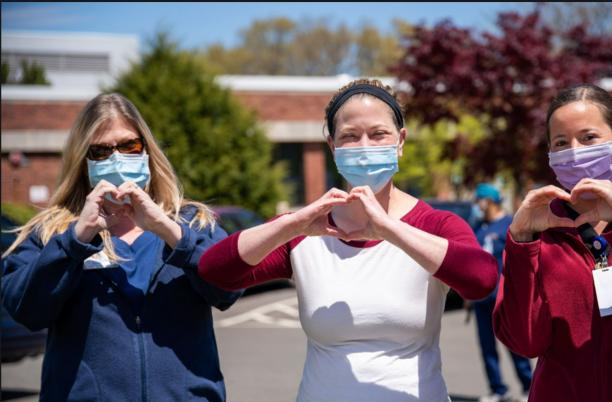
A career development pathway for Clinical Nurse Specialists

Phyllis Tuckwell Hospice share learning from their work to develop a pathway for Clinical Nurse Specialists.
Title
About this innovation example
Project and outcomes
Project overview
A Clinical Nurse Specialist (CNS) oversees patient care, making sure each individual gets the holistic support they need. As patient numbers increase and patients present with more complex symptoms, CNSs have a vital role in delivering palliative and end of life care and improving quality.
To tackle local and national staffing shortages, Phyllis Tuckwell Hospice took a ‘grow your own’ approach to developing CNSs.
Outcomes
The hospice has developed a ‘CNS in training’ role, which allows registered nurses to progress into a CNS role. This takes 18-24 months and culminates in a substantive CNS post. So far, four CNSs have moved through the programme, with two more in ‘CNS in training’ roles.
The training includes:
- a working document that sets out the required competencies
- a learning agreement and bespoke training
- supervised practice and a dedicated practice supervisor
- a well-defined caseload of patients to manage, with support from a CNS
- working alongside the Advice and Referral team
- opportunities for reflective practice
- development of specialist palliative care experience.
Trainee CNSs are also encouraged to undertake the appropriate Level 7 training modules.
The ‘CNS in training’ role has improved staff recruitment and retention. Developmental posts are enticing for applicants who want to improve their skills and career prospects. Existing staff feel more valued because they know the hospice is investing in their progression.
The developmental posts are also appealing to nurses who have a wealth of experience, but have not previously worked in a specialist palliative care setting.
Facilitators, challenges and advice
Key facilitators
The new role has been helpful for overall recruitment. If somebody applies for a ‘CNS in training’ role, but they are not successful, there is a possibility that they could be put forward for another role in the hospice.
Challenges
It takes time, effort and planning to support someone through a ‘CNS in training’ role, particularly from existing CNSs. This can be difficult for an already stretched team. However the long-term benefits outweigh the challenges.
Tips and advice
You need to make sure you can offer a substantive CNS post at the end of the training programme. Make sure this is included in your budget.
Is your hospice an attractive place to work? Think about what flexibility you can offer within the role, what the pay and conditions will be, and what support you can offer people.

